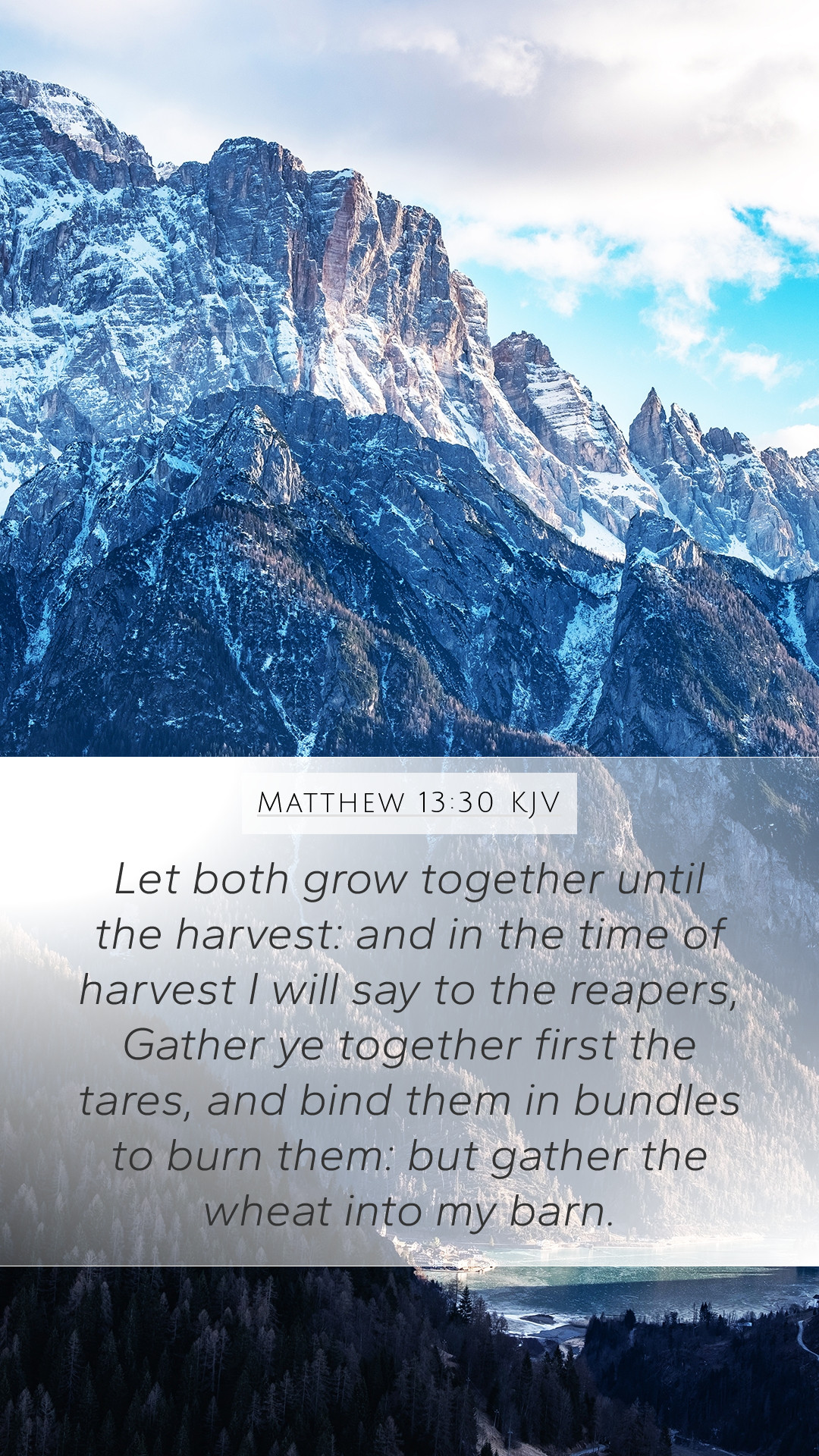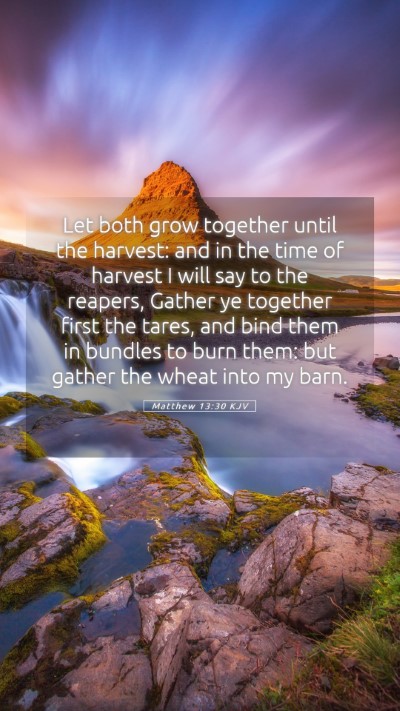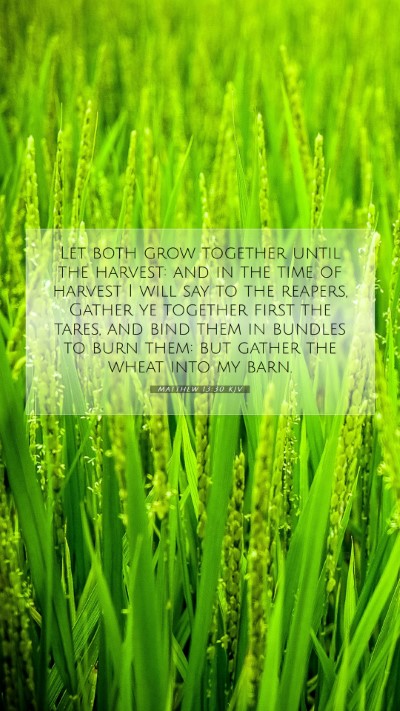Understanding Matthew 13:30
Bible Verse: Matthew 13:30 - "Let both grow together until the harvest: and in the time of harvest I will say to the reapers, Gather ye together first the tares, and bind them in bundles to burn them: but gather the wheat into my barn."
Summary of Bible Verse Meaning
The parable of the wheat and tares is a profound teaching of Jesus that speaks about the coexistence of good and evil in the world and the ultimate judgment at the end of time. This verse encapsulates the message that there will be a time of separation between the righteous and the unrighteous. It reflects God’s patience and the process of growth that occurs for both believers and the non-believers until the final judgment. Understanding this verse requires careful analysis of the parable as a whole.
Commentary Insights
-
Matthew Henry's Commentary: Henry emphasizes that the wheat and the tares represent the true believers and the false believers respectively. The growth of both symbolizes the Church as they coexist in the world. God allows both to grow together, highlighting His justice and mercy, as He wishes for all to come to repentance.
-
Albert Barnes' Notes: Barnes points out the significance of the harvest as a metaphor for the final judgment. The reapers are indicative of angels who will conduct the separation. This process serves as a reminder of the reality of divine judgment, showing that while evil may flourish temporarily, it will ultimately be dealt with.
-
Adam Clarke's Commentary: Clarke underscores the importance of recognizing that the tares were sown by an enemy, which teaches about the presence of evil in God’s creation. He explains that this should encourage believers to remain steadfast in their faith despite the presence of falsehood and sin around them, trusting God's righteous plan.
In-Depth Analysis of the Verse
In Matthew 13:30, Jesus uses agricultural imagery familiar to His audience to convey deeper spiritual truths. The harvest signifies the fulfillment of God's promises, where believers will be gathered to Him and the wicked will face judgment. This dual process affirms the sovereignty of God, wherein He is in control even amidst the flourishing of evil.
Key Themes
- Judgment: The verse highlights the concept of a final judgment, where actions and faith are weighed by God.
- Coexistence: The existence of both wheat and tares portrays the reality of life in a fallen world, and the need for discernment among believers.
- Divine Patience: The delay in the separation of the two signifies God's mercy, allowing time for repentance and growth.
Application of the Verse
Understanding Matthew 13:30 provides valuable insights for daily life. It encourages believers to remain patient and faithful, knowing that God sees all and will ultimately rectify wrongs. The verse also inspires a call to discernment in personal and communal spaces, encouraging individuals to promote truths and live righteously while being aware of surrounding influences.
Cross References
- Matthew 13:24-30 - The Parable of the Wheat and Tares
- Galatians 6:7 - "God is not mocked: for whatsoever a man soweth, that shall he also reap."
- 2 Corinthians 5:10 - "For we must all appear before the judgment seat of Christ."
Conclusion
Matthew 13:30 serves as a potent reminder of the existence of both good and evil in the world and emphasizes the importance of faith amidst trials. Through scriptural analysis, theological reasoning, and practical application, we can further appreciate the profound meanings rooted within this verse. Engaging in Bible study groups and utilizing various Bible study resources can deepen one’s understanding of Scripture and enhance spiritual growth.


